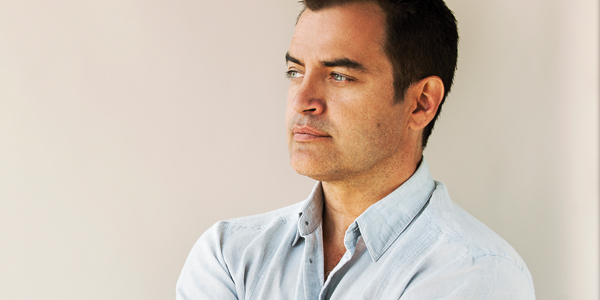 To be sure, I have been blessed and privileged to meet an array of fascinating people over the course of my 30 plus year career as a medical psychologist. The kaleidoscope of humanity ranges from those who by some catastrophe have been relegated to struggle for their next breath as they lay in a hospital bed to those whose genius and ambition has allowed them to rise to positions of celebrity, wealth, and power.
To be sure, I have been blessed and privileged to meet an array of fascinating people over the course of my 30 plus year career as a medical psychologist. The kaleidoscope of humanity ranges from those who by some catastrophe have been relegated to struggle for their next breath as they lay in a hospital bed to those whose genius and ambition has allowed them to rise to positions of celebrity, wealth, and power.
With a single decision they can impact, for better or worse, multitudes of humanity.
What has indelibly impressed me is that there is little to no relationship between one’s status in life and the ability to find peace, joy, and tranquility a.k.a. happiness. This observation has become a driving force in my desire to understand happiness and who, how, when, and why some appear to be blessed with it while others search in vain for it.
For millennia the subject of happiness, its nature, value, and how it is achieved has been a matter of philosophical and scholarly debate. However, I have an advantage over my predecessors in that it has recently become the domain of scientific inquiry. When I finished the manuscript for, “What Happy People Know…” in the fall of 2001 a quick google of scientific articles on the topic indicated that there were a little over 400 scientific studies in the literature. (A similar search on depression yielded nearly 70 thousands hits.) Today not only is there a professional journal dedicated to the subject there are thousands of research articles, thanks largely to the advent of Positive Psychology, a new psychological discipline that seeks to scientifically understand what is right with human beings and their organizations.
As I engage people in dialogue on the topic, before any discussion goes very far, the question invariably arises regarding genetic predisposition.
While the best research suggests that genetics contribute to approximately 50% of one’s capacity for happiness, it also suggests that 10% is event driven, and most importantly 40% is intentional.
That 40% affords most people a definite advantage for finding happiness. Even the curmudgeon has the capacity to lighten up.
Happiness and related positive emotions are important for a number of reasons. Happy people in general tend to be healthier. There is ample research suggesting that their immune function is enhanced. There are a number of biochemical and neurological markers that support this conclusion. Conversely, people who suffer from mood disorders such as depression often experience suppressed immune function. There is ample evidence of an increased risk of cardiovascular disease.
Happy people have better and longer lasting relationships. It is the positive interaction that builds the bonds so necessary for the most meaningful of relationships. Positive emotions have been correlated with enhanced performance, increased productivity, creativity, and innovation. In a very real sense human emotion is energy. Positive (+) emotions add energy for living, think addition; and negative emotions (-) take away energy, think subtraction.
What are the qualities that happy people intentionally tap into? In my review of the literature there were twelve that came up repeatedly:
Love – It can be said that happy people are loving people and loving people are happy people. Who and what do you love? And how often do you demonstrate that love?
Optimism – Is not seeing the glass as half full, it amounts to learning from every life experience and understanding that the most painful experience will often yield the most profound of lessons. Wisdom is the true foundation of optimism.
Courage – The capacity to act constructively and often selflessly in spite of fear. Throughout the history of warfare there are numerous examples of soldiers placing themselves in harms way knowing they’ll sacrifice their life to save their comrades. In civilian life, “whistle blowers” are another example of courage. They often pay extreme prices for choosing to do the right thing.
A sense of freedom – This is the power to exercise choice to one’s benefit. Viktor Frankl who was interred in the infamous death camp, Auschwitz realized the Nazi’s could take everything from him including life itself, save for one thing; they could not take his attitude. Attitude can be given away, but it cannot be taken. This is the power that prevents victims from becoming victimized!
Proactivity – People actively and willfully participate in their own destiny. They see possibilities where others see only problems.
Security – Is an inside job. It comes from knowing that no matter what happens one will ultimately land on their feet.
Health – Health and happiness are interdependent. One cannot truly be healthy without a prevailing sense of happiness.
Spirituality – Happy people aren’t afraid to go beyond the boundaries of their own lives, to see themselves as part of a larger picture. They are not concerned about dying; they are focused on living fully.
Altruism – Unhappy people are often too self-absorbed to give to others, but happy people know how intrinsically good it feels to give to others.
Perspective – Happy people see many possibilities all about them. They will focus on some of those possibilities in order to transform them into reality. For example, CEOs who see the world as a place of abundance make far better leaders than those who see it as a place of scarcity.
Humour – Lifts suffering off the heart and hands it to the intellect and spirit. It allows one to see the world in a slightly skewed manner thus making the situation tolerable and often more manageable.
Purpose – Happy people know literally why they got out of bed this morning. They have something to look forward to, and something to celebrate.
It isn’t necessary that someone have all twelve qualities to be happy. Probably three or four will be sufficient to live in happiness as a rule. Acknowledging human nature, it is a given that we will all experience the entire spectrum of emotion over the course of our lives. The question is, “Where does one prefer to live most of the time?”
How does one incrementally become a happier person? There are many tools by which one can harness the power of intention. Utilization of these tools can help you build and enhance the qualities listed above.
Here are three tools you can easily incorporate into your life:
1. The Appreciation Audit: Before getting out of bed in the morning think for 30 seconds about someone, or something, or some activity for which you have a deep and abiding appreciation. In other words, “What’s right in your life?” Ask this question at lunch before you take that first bite of food and then again at night before you drift off to sleep.
2. Be Constructive: Whenever confronted with a difficult situation ask yourself, “How can I constructively respond to this situation?” “How can I make the best out of this?” Ask more questions to help with this… “What am I to learn?” “How am I to glean wisdom from this?” “How do I become more resilient?”
3. See the Possibilities: Each day look for opportunities to befriend, learn, to produce, and to give back. Commit to at least two per day. When successful, make certain to celebrate the little victories. It can be as simple as being thankful for the opportunity to make a difference.
These are but a few of the things that the people I’ve had the privilege to get to know over the last three decades have taught me. They are backed up by current scientific research. Happiness is important. There is no one in his or her right mind that wakes up hoping to have a horrible day. For those of us who have children our most sincere wish is that they grow up healthy and happy. When life’s milestones are reached we often wish people “Happy Birthday,” “Happy New Year”, “Happy Anniversary” etc. it is fundamentally core to a quality and meaningful life. And for me, happiness is found in the sharing of this information with others and watching them enhance the quality of their life by putting this knowledge to work.





